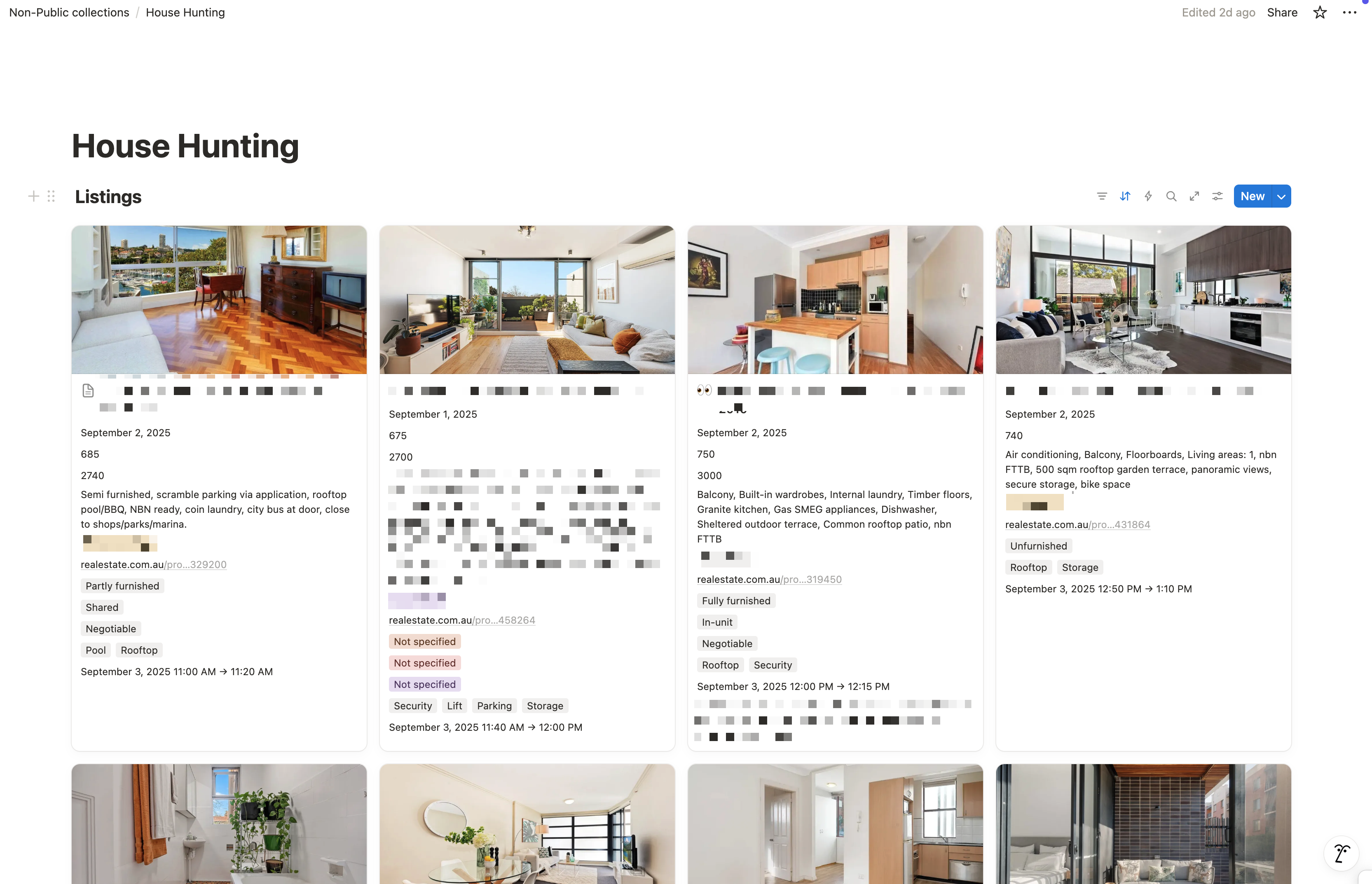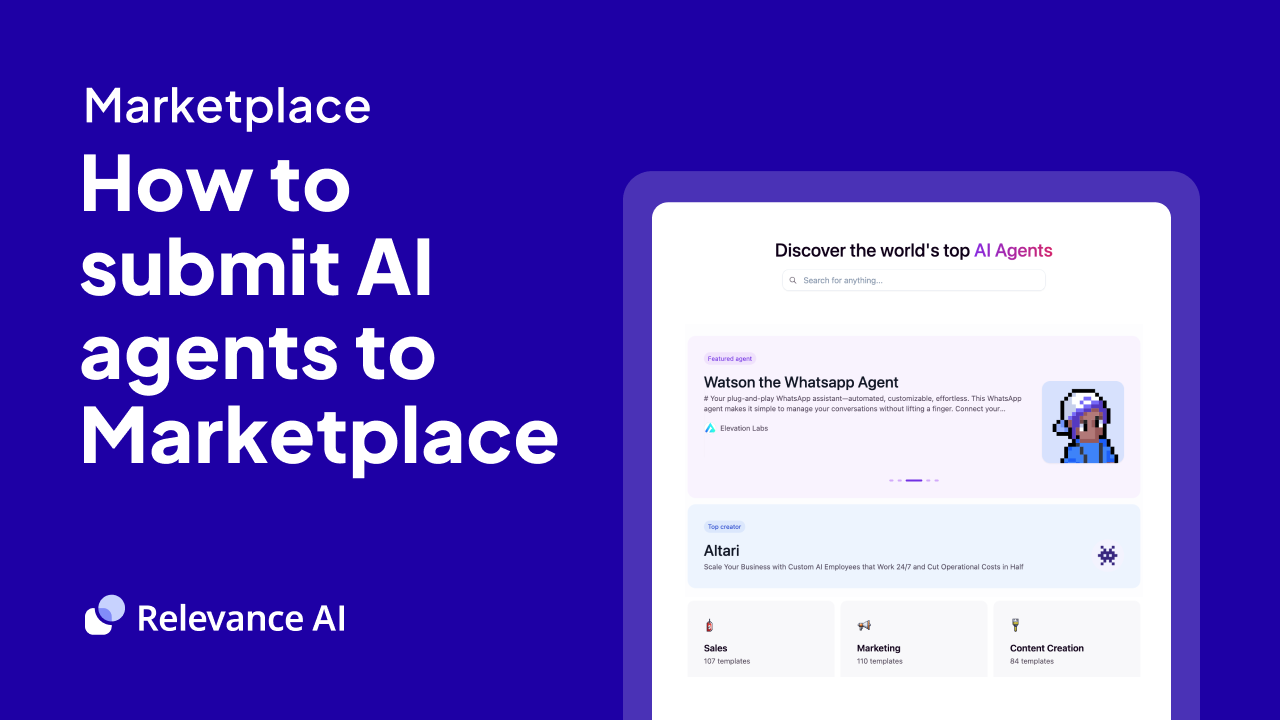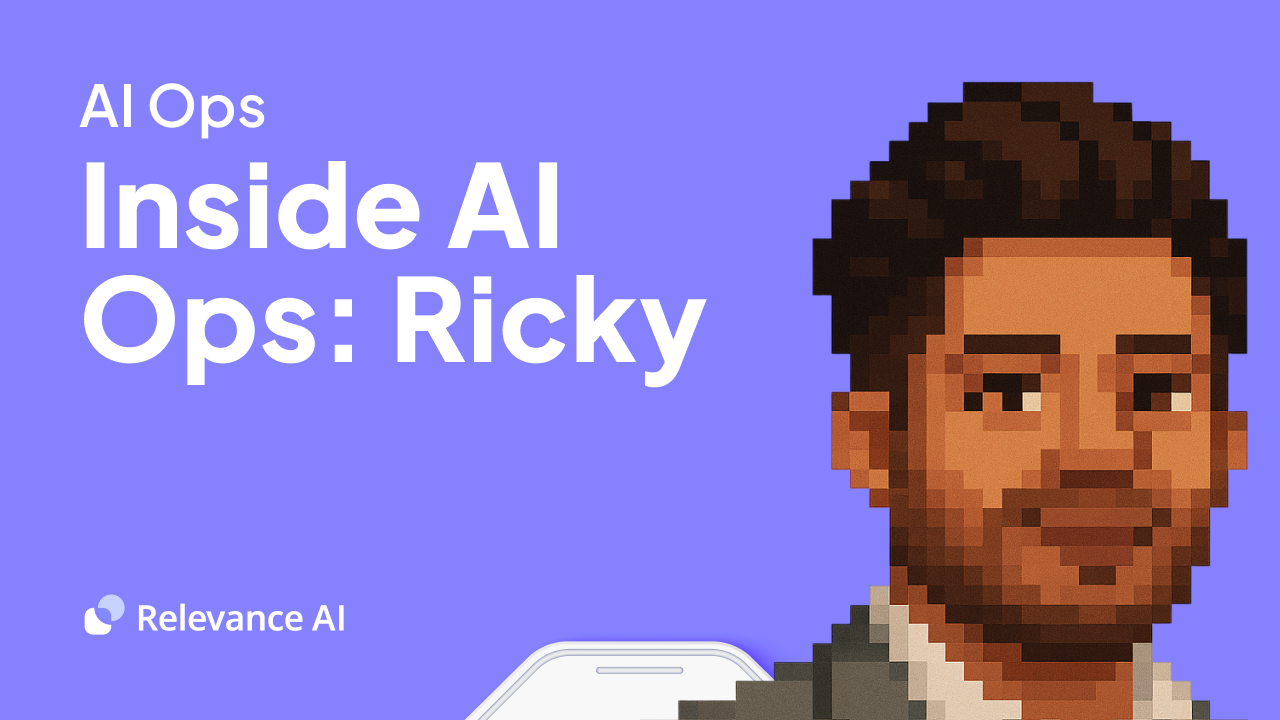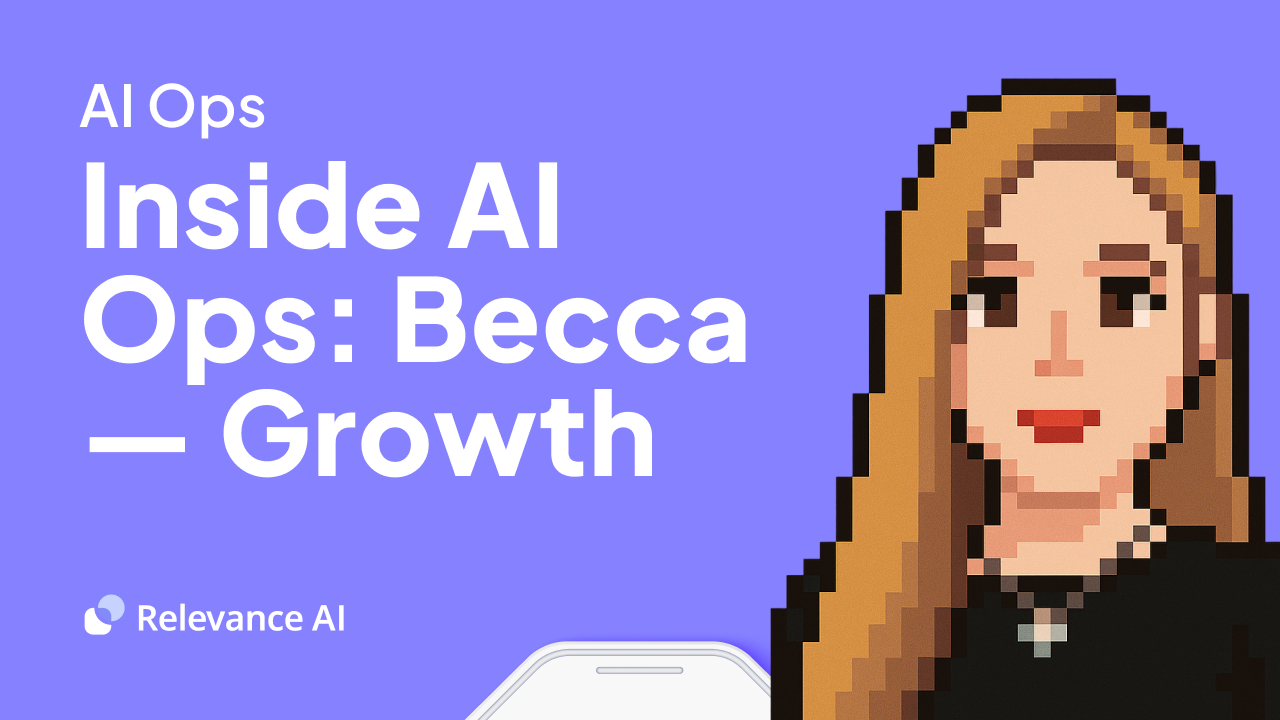
1) What’s your role today - and what’s your favorite part of it right now?
I work as an AI Growth Engineer on the AI Ops team. Every day is different, and packed with shipping, learning and working with people across many different teams, internally and externally. It’s very fast paced and high-energy, and I love every second of it.
Shipping
The through-line of every day is shipping workforces and agents that solve thorny ops problems at scale. I’m a maker at heart so love getting hands on and shipping. A couple recent examples:
- I've built a content marketing workforce that increased traffic by 10.5% (25.6k monthly visits, up +2.7k) and acquired 600 new keywords in 30 days (industry average is 5-10% for traffic and 100-300 keywords in same period). On-page SEO-focused.
- I’ve built a lot of agents that focus on image-generation that have become part of our company culture. Like a postcard generating agent that creates a personalised postcard that new hires get a physical copy of when they join, showing them as pixel agents with some of their favourite hobbies and snacks. A pixel art profile photo generator we use for new agents. Before our company grew, we also used a face-swap agent for a shout-out segment of our company-wide weekly all hands meeting.
Learning
- Working at an AI-first company means experimenting with new models and tools when they come out, and sharing those learnings with each other. It was pretty amazing getting to try the new nano-banana image generation models on existing use-cases, getting mindblown by the increases in consistency and seeing it in our product the next day.
Collaboration
- The Ops team is all about shipping agents to help other teams and customers get to value, so collaboration is built-in.
- I also love the partnership aspect of this role, getting to work with other companies to build agents that leverage their platform and integration. For example, co-building a suite of SEO agents with the Moz team was a lot of fun, and are used in production internally too.

2) Before → After: one workflow you’ll never do manually again
I’ll pick a personal agent here instead of one I made at work. I built a rental helper agent which helped me process 941 properties and narrow down to 33 candidates in 2 hours. I viewed and applied to one the next day.
I plugged in all suburbs within my chosen radius, scrolled through the listings and when I saw one I liked, I wouldn’t read it. Instead I’d copy paste the whole page and give it to my agent, which would extract the data I cared about and save it to a Notion DB so it was easy to scan and compare them all next to each other.
I will never do that process manually again, because it made a stressful process easy and fun

3) In one line, how do you define AI Ops from your seat?
Shipping workforces that solve thorny ops problems, by working with every possible kind of person, iteratively learning what works, and scaling it.
4) Tell us about an agent you’re proud of (name + job) and how you know it’s “good enough.”
The workforce I’m most proud of, is one we built as a team. It’s the MRP workforce which lets you do most things across many different integrations including G-Suite (Gmail, docs, sheets etc), HubSpot, Linear and more.
Every agent has 1-3 very simple tools, like a generic API call, and some documentation about the integration API endpoints. You can give it a task and in most cases, it can work out how to do it.
What impresses me most about it is how much easier it is for customers (and myself) to get to value. For example, today I was asked if it was possible to extract all comments from a Google Doc and get the agent to rewrite it to incorporate the feedback. The MRP was not built with this use-case ever in mind, but without changing a single thing, it can just do it.
I also used it to help me build that rental helper agent mentioned above in 30 minutes
5) Where must a human stay in the loop - and why?
The most important place for humans to stay in the loop is during the build process. The best agents are built by domain experts in the field.
The SEO agent fleet we have are so useful because they were built in partnership with Moz who live and breath SEO.The content marketing workforce we have is so effective because I was head of content in a past life.
Our internal and external ops workforces are most effective when the people they are built for can tell us if it’s actually useful or not for them. After the build process, there are two main places a human in the loop are most necessary:
- High-risk tasks that need to be monitored or approved until such time that you trust the agent (through enough testing) to do the right thing at the right time. For example you don’t want a support agent handling account deletions or refunds until you have very high confidence that it can handle all your business edge-cases correctly.
- Tasks that you want to do as a human. The point of agents and workforces is to automate the things you do repetitively that you don’t want to do. Just because you can automate a task, doesn’t mean you have to if that’s where your joy comes from. For example, while I can use agents to write newsletters for my personal AI project deep dive series, I love the process of writing. I’ll definitely automate the SEO keyword research though. Others might rather do the reverse.
6) A favorite failure → rule story
My most favourite failures feel like power-ups because they make you better at work and at life:
- Valuing learning over trying to sound smart (especially important the more experience you have imo). In the past I have lost out on learning opportunities by being to afraid to admit I didn't know what they were talking about.
- Letting go over keeping ownership - there are some projects I have wanted to own, when it would have been better to learn from their way of doing it, or collaborating.
- Iteration > Perfectionism (I struggle with this so it's good to be reminded of it).
7) Looking 12 months ahead, what do you hope feels normal — and what will you personally spend more time on?
I feel like I’d get bored if things felt normal. I love the fast-paced chaos, experimentation, building, shipping and connecting with everyone.
Personally, I’d love to spend more time co-shipping solutions with many brains trying to solve the same problem. Everyone will have ideas that no one else would have thought of just because of our diversity in life experience and problem-solving processes.
I’m also looking forward to working on things that are currently not possible, that I/we could never have predicted. The future is possibility and magic.
Quick Fire Questions
1. Next thing you’ll automate
Content Cluster Workforce.
2. Tool you can’t live without
3D AI Studio
3. One-line advice
Regularly carve out time to follow your curiosity aimlessly.












